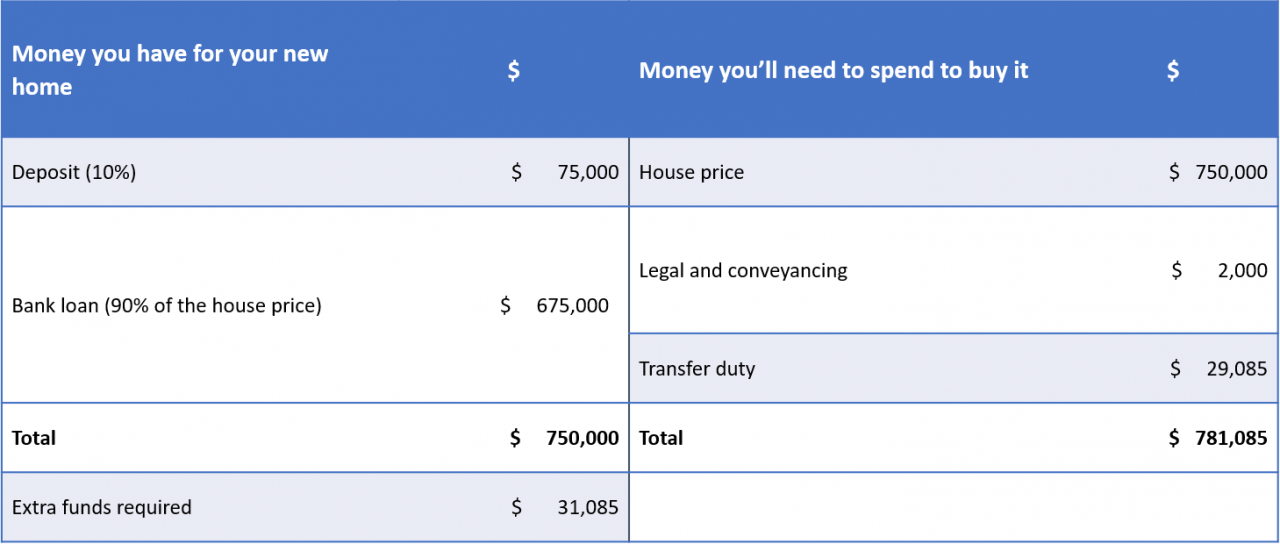Tips for buying a home at auction

Buying a home at auction can be a pretty stressful time. The money stakes are high and most people are likely out of their comfort zone. Here are some tips to help bid at auctions confidently.
1. Be prepared
Before you arrive at auction, make sure you have your home loan pre-approved. You will need more than simply 10% of the value of the property to complete the sale. Calculate the costs of your State’s Duty Transfer, budget at least $2,000 for legal costs and conveyancing reports, as well you may need to budget for an engineers report if it is a free standing house. Add it all up and you’ll know the limit you can bid for.
For example:

2. Visit auctions before you bid
Learn some of the simple elements of a property auction before you have to do it for real.
Regardless of whether your state requires you to pre-register, you will need to show ID to the selling agent on the day of the auction, so that they can take down your details and hand over a paddle. You will need to show the auctioneer your paddle every time you bid.
3. Ask the selling agent for comparable sales
The selling agent should have access to an RP Data report on comparable sales. Most agents will have a subscription to this and should be happy to provide it to you.
4. Don’t give too much away
Don’t share specifics with the selling agent or be drawn on the amount you’re willing to pay. Remember the selling agent is not working for you but the seller to maximise their sale price.
Look at the competitor bidders. If they’ve got their mum and dad with them and they’re all looking at each other and having a conversation – there’s a very good chance that that buyer has reached their limit and they’re discussing with the family whether they’re out, or whether they should go another $5,000.
5. Bid early, start low
If you bid early and low, you’re far more in control of the situation than if you jump in late. If the bidding is going too fast and you want to slow it down, then bid in odd numbers. For example, if the auctioneer is asking for a $10,000 bid, you can give them $7,000.
6. Set yourself a limit
Decide on a price ceiling for the property itself. Go back to the start and calculate all the costs of settling the purchase, such as legal costs and transfer duty.
Do not bid more than your budget. Remember that an auction is a legally binding contract.
7. Consider using a buyer’s agent
A professional buyer’s agent can help you navigate the complexities of an auction and even bid on your behalf.
8. If a property is not sold at the auction and is passed in?
In most states, if a property passes in (i.e. is withdrawn from the auction after failing to meet the vendor’s reserve price), the highest bidder gets first right to negotiate a price with the seller. However, if you do not agree and sign a sales contract there and then, other bidders will likely put a direct bid in with the agent.
What happens after the auction?
If you’ve won at auction, you’ll need to pay your deposit. This will usually be at least 10% of the purchase price. This is why it’s important to be ready with a form of payment when you attend auction.
You can use a personal cheque or a bank cheque. If you’re planning to use a bank cheque, have it made out for an amount that’s 10% of your budget limit. If you end up winning at auction at a price lower than your limit, the deposit will be larger than 10%, but this just means a smaller home loan debt.
You’ll also need to sign your contracts. Remember, until the contract has been signed the seller is under no legal obligation to follow through on the sale.
Don’t have the Raiz App?
Download it for free in the App store or the Webapp below:
Important Information
The views of these experts are not necessarily the views of Raiz. Please consider your own financial goals and circumstances when making an investment.
The information on this website is general advice only. This means it does not take into account any person’s particular investment objectives, financial situation or investment needs. If you are an investor, you should consult your licensed adviser before acting on any information contained in this article to fully understand the benefits and risk associated with the product.
A Product Disclosure Statement for Raiz Invest and/or Raiz Invest Super are available on the Raiz Invest website and App. A person must read and consider the Product Disclosure Statement in deciding whether, or not, to acquire and continue to hold interests in the product. The risks of investing in this product are fully set out in the Product Disclosure Statement and include the risks that would ordinarily apply to investing.
The information may be based on assumptions or market conditions which change without notice. This could impact the accuracy of the information.
Under no circumstances is the information to be used by, or presented to, a person for the purposes of deciding about investing in Raiz Invest or Raiz Invest Super.
Past return performance of the Raiz products should not be relied on for making a decision to invest in a Raiz product and is not a good predictor of future performance.


